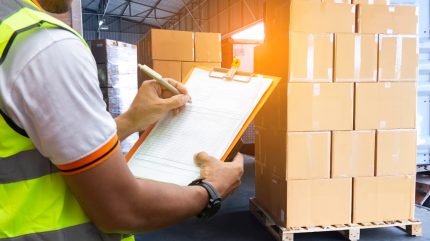
End-of-line packaging is the final stage in the manufacturing process, where products are securely prepared for shipment. This stage involves case forming, labelling, sealing, palletising, and stretch wrapping to ensure products reach customers intact.
In recent years, the UK end-of-line packaging sector has seen substantial growth, largely driven by automation, sustainability initiatives, and the demands of modern supply chains.

Discover B2B Marketing That Performs
Combine business intelligence and editorial excellence to reach engaged professionals across 36 leading media platforms.
Understanding end-of-line packaging
End-of-line packaging encompasses all processes that occur after a product is manufactured but before it leaves the factory. Key operations include:
- Case forming and packing – assembling boxes and placing products inside efficiently.
- Sealing and labelling – ensuring packages are secure and properly identified.
- Palletising – stacking products on pallets for safe transportation.
- Stretch wrapping – applying protective film to prevent damage during transit.
These processes are critical for product protection, regulatory compliance, and maintaining supply chain efficiency. Proper end-of-line packaging not only safeguards the product but also reduces handling errors and shipping costs.
Automation shaping the industry
Automation is transforming the end-of-line packaging industry by increasing speed, accuracy, and consistency. Robotic arms and automated conveyors can pack, seal, and palletise products faster than human labour, while reducing errors and operational costs.
UK companies such as Endoline Automation specialise in machinery like case erectors, packers, and sealers, designed to integrate seamlessly into production lines.

US Tariffs are shifting - will you react or anticipate?
Don’t let policy changes catch you off guard. Stay proactive with real-time data and expert analysis.
By GlobalDataAutomation is particularly beneficial for industries such as food and beverage, pharmaceuticals, and consumer goods, where product safety and precision are essential.
Sustainability and regulatory impact
Environmental concerns are reshaping end-of-line packaging.
The UK’s Extended Producer Responsibility (EPR) scheme, set to be fully implemented in 2025, will require manufacturers to take responsibility for the lifecycle of their packaging. Businesses must ensure packaging is recyclable and minimise waste.
This shift is encouraging the use of eco-friendly materials and process optimisation to reduce environmental impact. Many manufacturers are moving from traditional plastics to recyclable or biodegradable alternatives, reflecting consumer demand for sustainable products.
The future of end-of-line packaging
Looking ahead, the end-of-line packaging sector is set to continue evolving. Advanced technologies like artificial intelligence and machine learning are enabling predictive maintenance, smarter decision-making, and even greater efficiency.
The growth of e-commerce is also increasing the need for innovative packaging that protects products during transit.
Companies that adopt automation, sustainable materials, and intelligent packaging solutions will remain competitive in an industry defined by efficiency, innovation, and environmental responsibility.
End-of-line packaging is no longer just a final step—it is a strategic component of modern manufacturing, combining technology, sustainability, and precision to meet the demands of today’s global supply chains.





